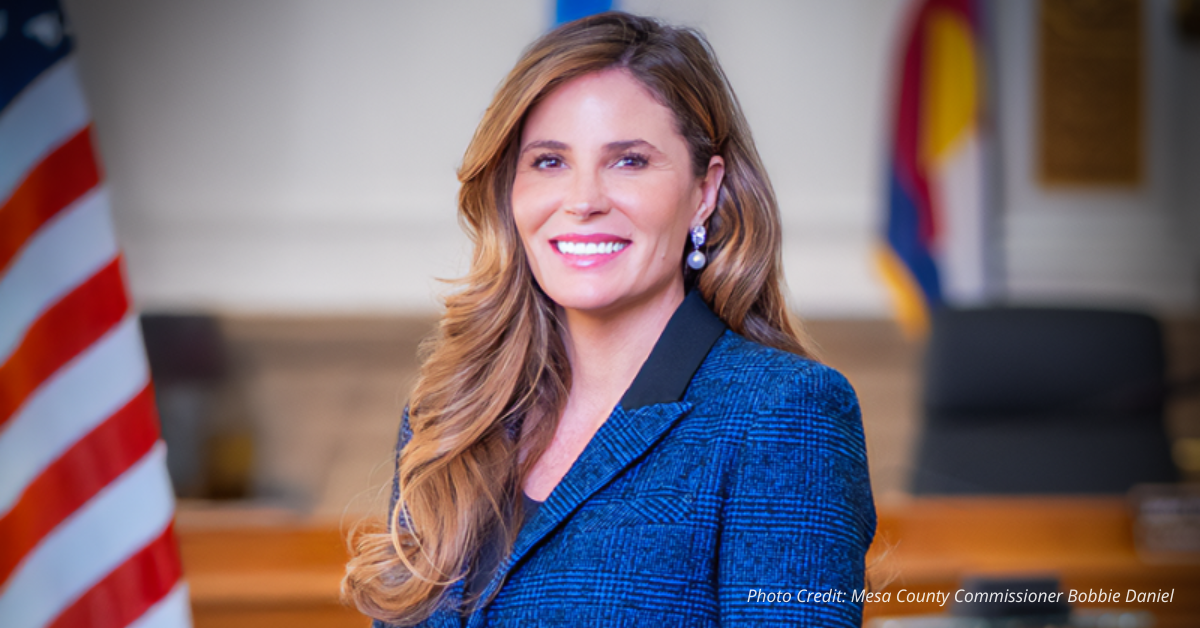Resolving family legal issues can be stressful and complicated. Emotions run high, and it can be difficult to see the matter clearly. You need objective legal counsel from an experienced family attorney. Call the Law Office of John Williams in Charlotte, NC. John Williams can assist you if you're filing for divorce. He also handles child custody and guardianship cases.
Arrange for a consultation with a divorce attorney in Charlotte, NC today.
MESA COUNTY


State’s unfunded mandates leave local taxpayers holding the bill
By Bobbie Daniel
Mesa County is proud of how we’ve managed our local budget. We’ve kept spending in check, rebuilt our reserves since the Great Recession and honored the Taxpayer’s Bill of Rights (TABOR) by refunding tens of millions of dollars back to the people who earned it.
Just last December, we returned $11.5 million to Mesa County taxpayers. A few years earlier, it was $12 million. That’s money staying right here in our local economy, funding family businesses, school clothes and food on the table instead of disappearing into bigger bureaucracies.
When the property tax crisis hit last year, Mesa County was also one of the few local governments in Colorado that actually lowered its mill levy, deliberately reducing taxes for our residents at a time when they needed relief most. That’s a concrete example of how we put taxpayers first and honor the spirit of TABOR, while still balancing our budget and funding essential services.
But even as we work diligently to protect your dollars, there’s a troubling dynamic unfolding that every taxpayer in Colorado should understand. Local governments across our state, from Mesa County to the Eastern Plains, are being forced to shoulder more and more costs from mandates dreamed up in Denver, while the state quietly walks away from the bill.
During just the past two years, Mesa County identified nearly $10 million annually in unfunded mandates from the state. That’s money redirected from public safety, roads and essential community services.
It’s like the state government going out for a lavish dinner, ordering everything on the menu, and then slipping out the back door, leaving counties and local taxpayers stuck picking up the tab.
And these costs keep piling up. Each new layer of rule making and regulation becomes another invoice sent straight to local communities.
The most glaring example right now is Rule 31, which imposes sweeping new methane rules on landfills. Mesa County already complies with rigorous federal standards on methane. Yet this new state rule would force us to spend $9 million up front, plus another $1 million every single year after, to fix a problem we’ve already solved. Only the state could figure out how to “fix” what’s already fixed — and still send you the invoice.
It’s the same story with the sudden law requiring all landfills to install new liners, forcing us to shell out $2 million on infrastructure we didn’t even need.
When I took office 2 1/2 years ago, nearly every county department shared its frustration: State mandates were squeezing budgets so tightly there was little room left to plan for tomorrow. And it’s not just Mesa County. A population-based estimate shows unfunded mandates cost Colorado’s 64 counties roughly $361 million every year, money drained from fixing roads, hiring deputies or upgrading vital infrastructure.
Every taxpayer is paying a hidden tax. It doesn’t show up on a ballot, but it hits your community directly. When the state hands down new rules without paying for them, local dollars get pulled away from the services you count on. Over time, this is how local budgets shrink while the state’s wish list keeps growing. And when the state spends freely but refuses to fund what it demands, it’s more than unfair, it’s unsustainable.
At its core, Colorado’s Taxpayer’s Bill of Rights was meant to do one thing: put taxpayers in charge of government growth. It protects your wallet by requiring voter approval for tax increases and keeping government spending in check. In Mesa County, we still believe budgets should balance, and taxpayers aren’t an endless ATM. That’s why we proudly operate under TABOR, returning excess revenues directly to you.
But the unfunded mandates coming out of Denver violate the very spirit of TABOR. They bypass voters entirely, forcing local governments to pay for new laws and regulations without ever asking the people who foot the bill. Local taxpayers expect — and deserve — a say before paying higher costs.
When the state hands down expensive requirements without funding or local approval, it’s nothing but an end-run around taxpayer consent. It undercuts the promise of TABOR and erodes trust in the system.
The good news: Mesa County is pushing back. We’ve joined other counties to fight overreaching rules like Rule 31, and we’re tracking every unfunded dollar, so taxpayers see exactly how their money is being diverted.
On July 29 at our public hearing, our Mesa County Commissioners board formally approved and sent a joint letter to Gov. Jared Polis, Senate President James Coleman, and House Speaker Julie McCluskie, urging immediate action to address the growing burden of unfunded mandates imposed by the State of Colorado on local governments.
The letter draws attention to the growing number of laws and regulations being passed without adequate funding, which ultimately forces counties to divert taxpayer dollars away from essential services such as roads, public safety and public health services.
Colorado needs a reset. The state must return to what government was intended to do: Get back to the basics and fund what it mandates, prioritize core services and respect the local taxpayer who ultimately shoulders every cost.
Until then, counties like Mesa will keep doing the heavy lifting, watching every dime and standing up for local residents, because your tax dollars shouldn’t bankroll state overreach. They should build the community you live in.
The Colorado Legislature has a moral and practical duty to face the true local costs of the laws they pass. Too often, fiscal notes ignore the impact on counties and cities, leaving local taxpayers to pick up the tab with no honest accounting or support. That’s not just sloppy policy, it’s flat-out unfair.
It’s time for the state to produce real, transparent fiscal notes that show exactly what new mandates will cost local communities. And when a law sticks counties with millions in expenses, the state has two choices: Fund it or fix it. Anything less is simply wrong, and local taxpayers shouldn’t have to pay for it.
Colorado can do better. And together — by insisting on accountability, smarter priorities and respect for the people footing the bill — we will.
Residents can learn more about Mesa County’s Fix It or Fund It initiative at mesacounty.us.
Bobbie Daniel is a Mesa County Commissioner, representing District 2.

